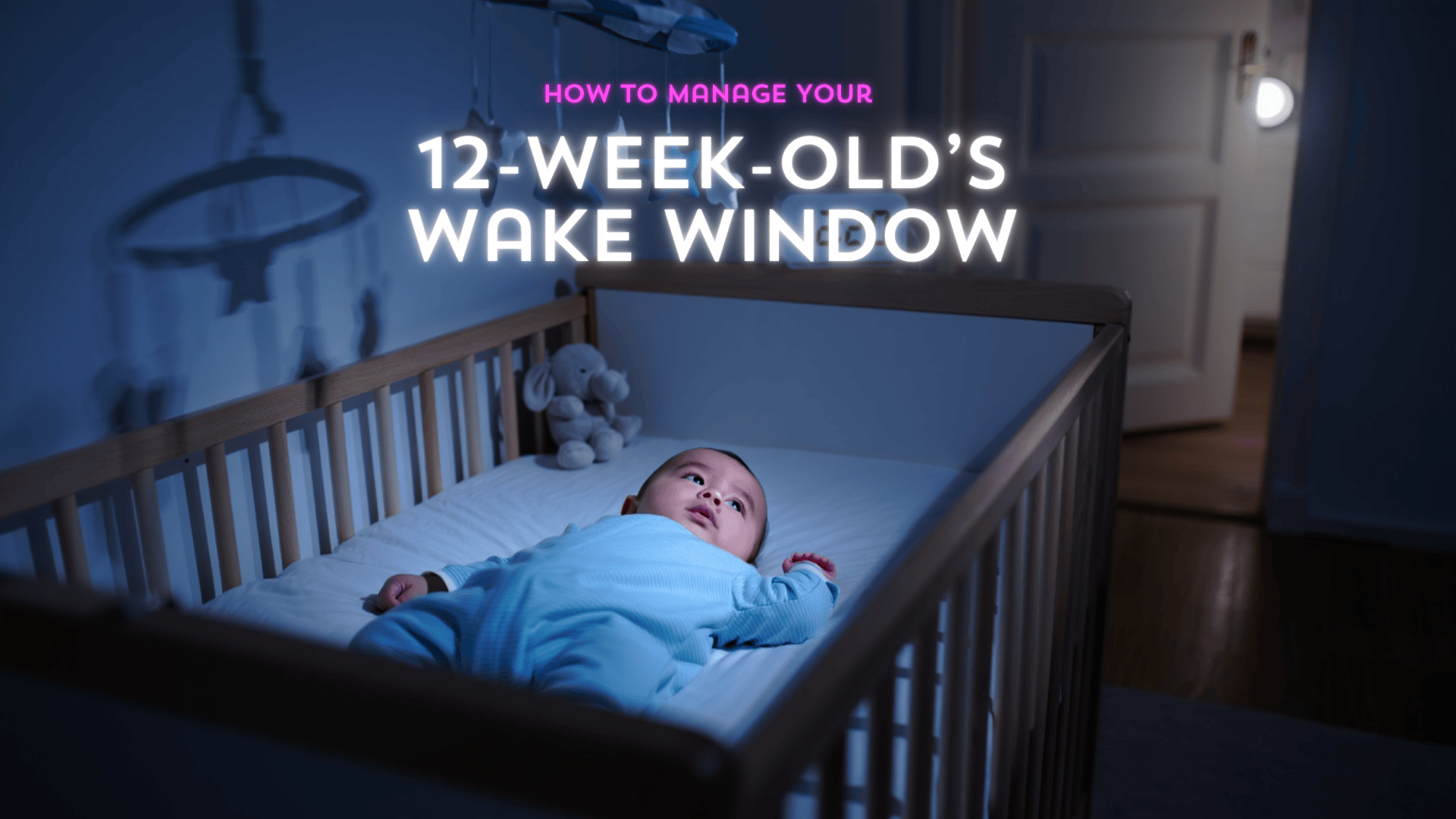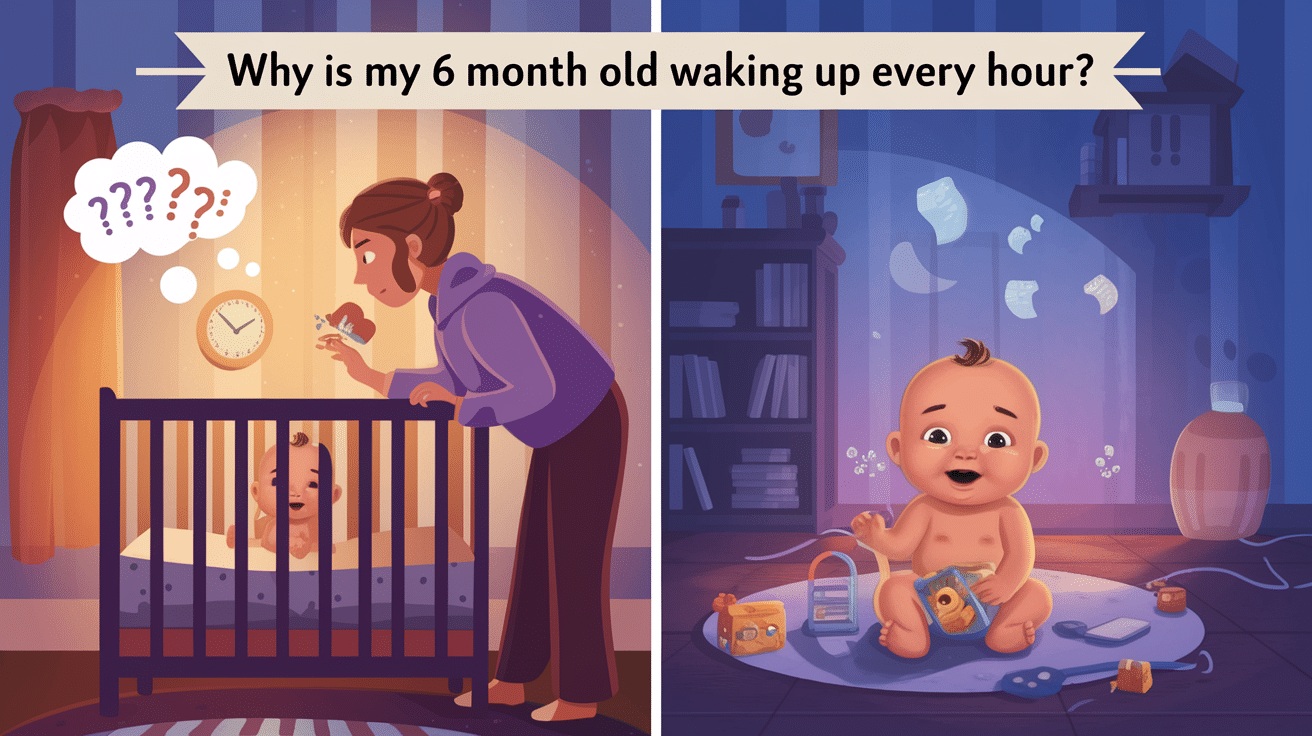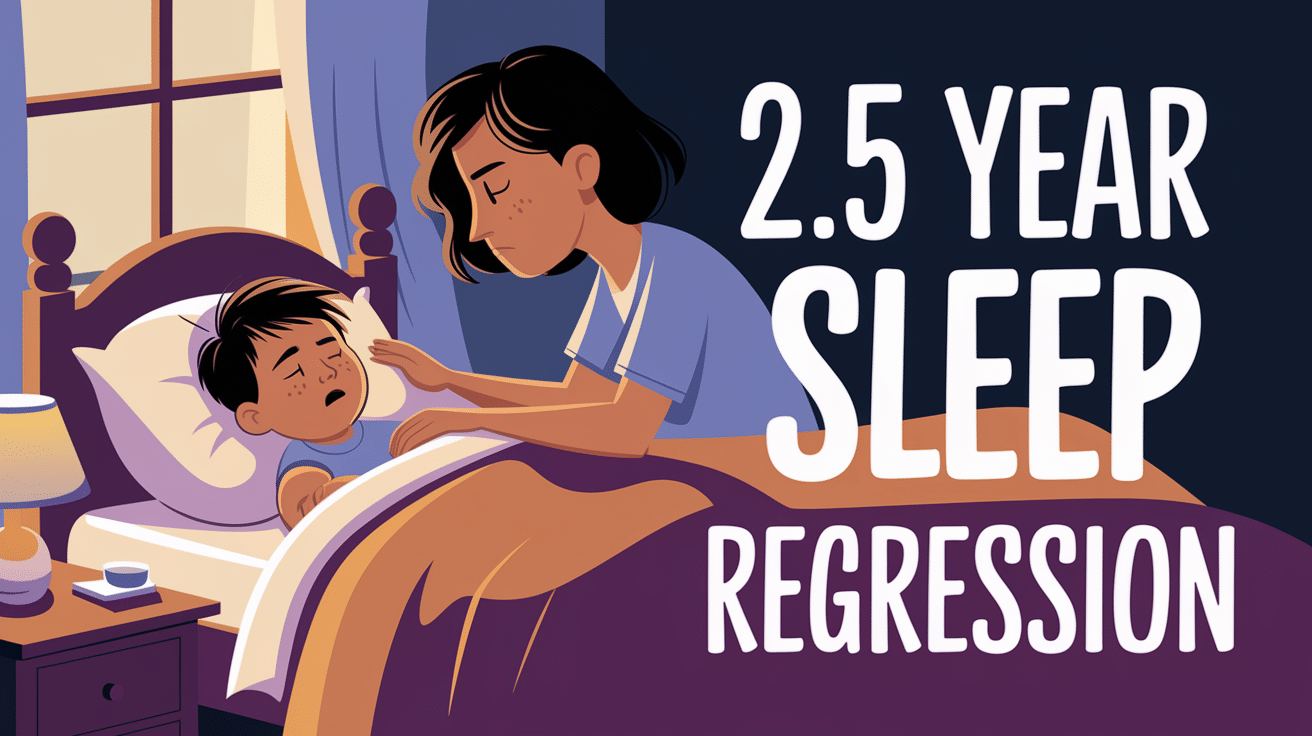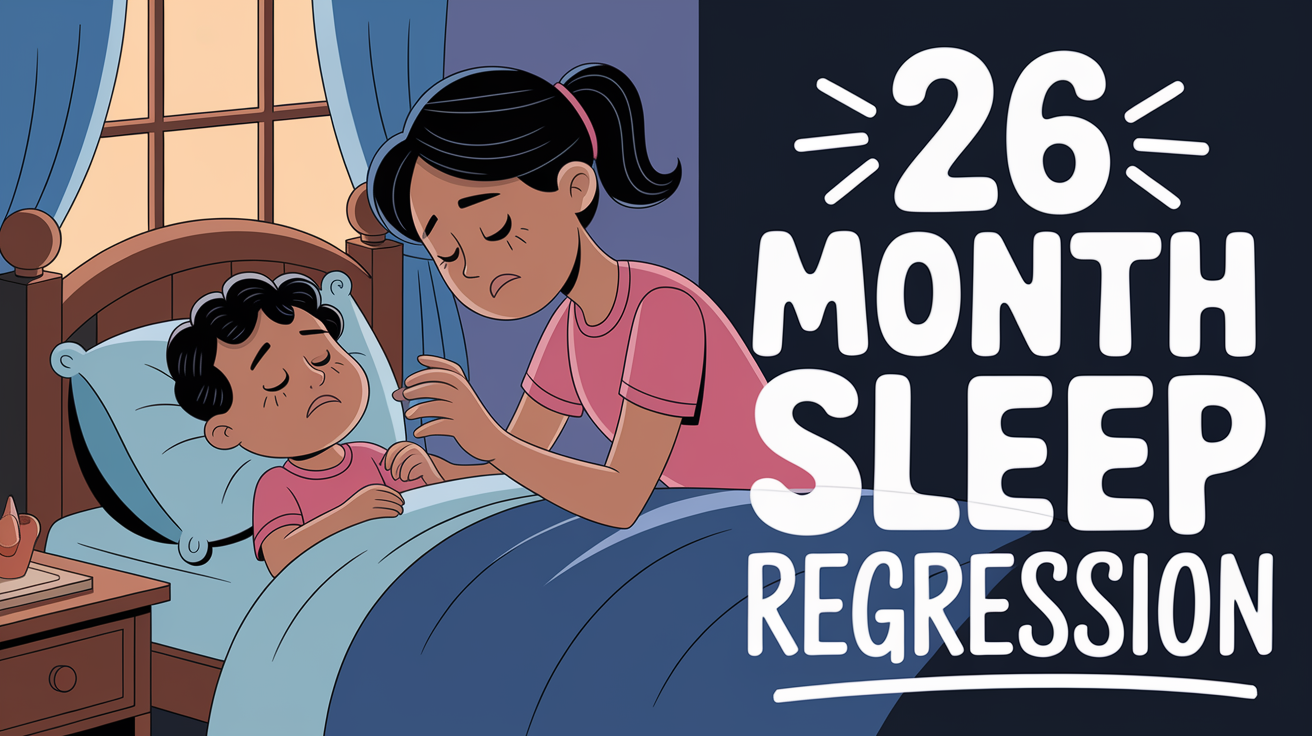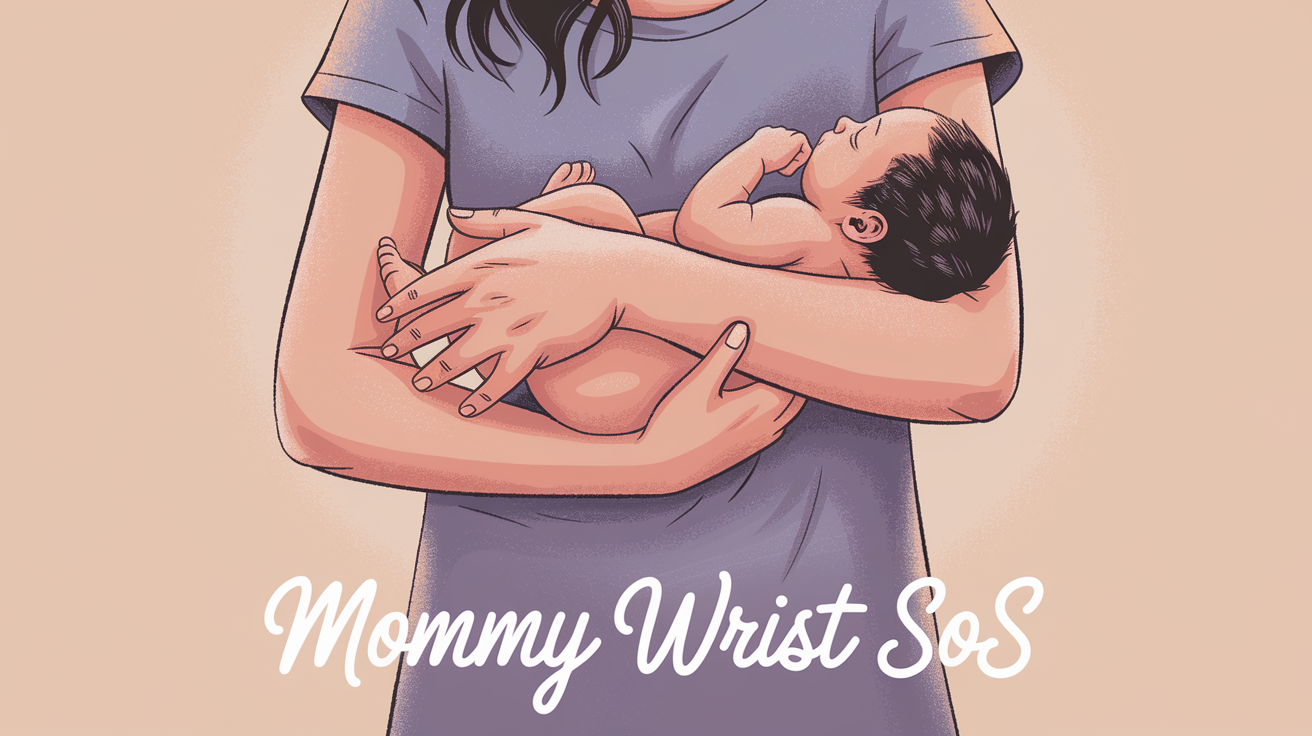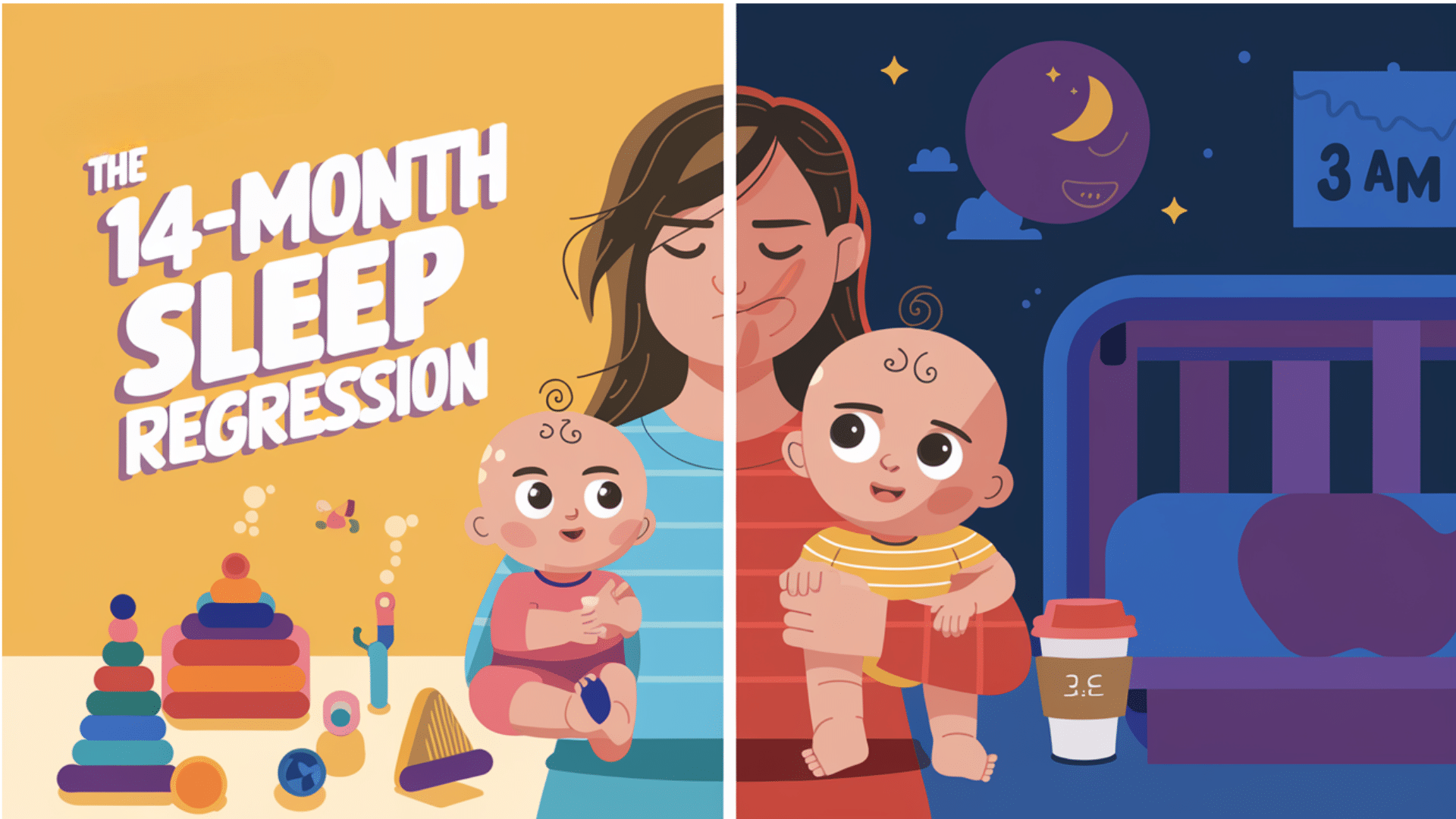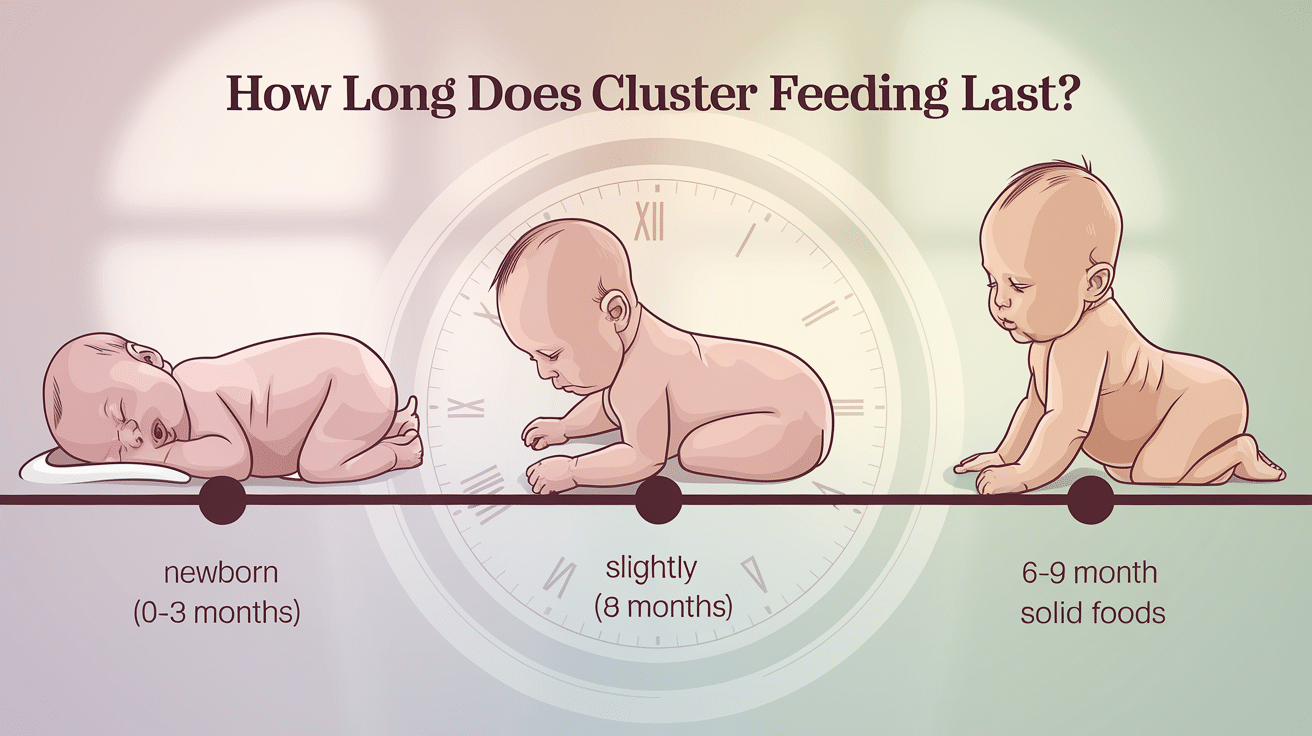
Is your 5-month-old waking up every hour, leaving you bleary-eyed and desperate for solutions? You’re not alone.
When you thought your baby was settling into a sleep rhythm, the 5-month mark arrives, and suddenly, you’re up all night again.
This phenomenon—often called the 5-month sleep regression can transform a once-decent sleeper into a frequent night-waker seemingly overnight.
Whether developmental milestones or other factors are disrupting your little one’s rest, there are practical strategies to help you both get back to sleeping for longer stretches.
Here, we’ll examine the reasons your 5-month-old is waking up every hour and exactly what you can do about it—starting tonight.
Understanding 5-Month Sleep Regression

If your once-stellar sleeper is suddenly waking up all night and taking 20-minute naps, you’re not imagining things. Sleep regression is real—it’s when a baby who was sleeping well suddenly isn’t.
And while there’s no official “5-month regression” in the baby sleep textbooks, many parents definitely experience sleep disruptions around this time.
What is the 5-Month Sleep Regression, and is it Real?
What’s actually happening is often the aftermath of the major 4-month sleep regression, when your baby’s sleep cycles permanently change to be more like adult sleep.
Your 5-month-old is cycling between light and deep sleep more frequently, which means more opportunities to wake up completely.
Plus, they’re rolling, noticing everything, and maybe even starting to scoot—their brains are too busy to sleep!
You’ll know you’re in it when your baby starts waking frequently at night, fighting naps, or needing you to rock, bounce, or feed them back to sleep every time they wake up. The bags under your eyes are real, and so is this regression.
How Long Does the 5-Month Sleep Regression Last?
“When will this end?” is probably what you’re wondering at 3 AM. The timeline varies based on what’s causing the disruption.
If it’s developmental (like rolling or increased awareness), it might last a week or two while your baby masters these skills.
Most sleep regressions last between 2 and 6 weeks, but don’t panic! With some adjustments to your baby’s schedule, environment, and sleep associations, you can help them (and yourself) get back on track much sooner. The good news is that, unlike the 4-month regression, this disruption is usually temporary and fixable.
The Most Common Sleep Disruptors at 5 Months
At 5 months, several specific issues tend to wreak havoc on baby sleep. Let’s break them down:
- Hunger often tops the list. Babies this age are growing fast and might genuinely need night feeds—especially if they’re distracted during daytime feedings. Try to ensure full feeds during the day by finding a quiet spot away from stimulation.
- Schedule inconsistency is another major disruptor. Letting nap times drift by more than 30 minutes each day confuses your baby’s body clock. Try to stick to a rough routine, even if the exact timing varies a bit.
- Environmental factors make a bigger difference now than in the newborn days. Room-darkening shades, white noise, and a temperature around 68-72°F create the ideal sleep environment. Many babies become more sensitive to light and sound at this age.
- Nap quantity matters. Too many naps can decrease sleep pressure at bedtime, while too few leads to overtiredness. Most 5-month-olds are transitioning from 4 naps to 3, so watch your baby’s cues to find that sweet spot.
Proven Strategies to Handle the 5-Month Sleep Regression

When you’re in the thick of sleep regression, practical solutions matter more than theories. Here’s what actually works:
1. Optimize Sleep Environment
Blackout curtains aren’t just nice-to-have—they’re essential for blocking out early morning light that can wake babies prematurely.
Pair this with white noise that runs all night (not on a timer) to mask household sounds and create sleep associations.
2. Look At Your Feeding Schedule
Many 5-month-olds get distracted during daytime feeds, leading to more night wakings from genuine hunger.
Try feeding in a quiet, dimly lit room to ensure they’re getting enough calories during the day. Some babies benefit from an extra “top-off” feed right before you go to bed.
3. Let Them Roll
Give those developing muscles and skills plenty of workout time during the day. Extra tummy time, practice rolling, and sitting supported help babies master these skills and get them out of their system before bedtime.
A baby who’s had plenty of chances to practice rolling during the day is less likely to wake up at 2 AM to try it out.
4. Pay Attention to Wake Windows
If your baby seems extra fussy before naps, they might be overtired—try moving nap time 15 minutes earlier. If they’re fighting sleep and seem happy, they might need a little more awake time.
Adjust in small increments of 15 minutes to find their sweet spot.
5. Plan an Early Bedtime
When naps go haywire (which they often do during regressions), an earlier bedtime can be a lifesaver. Moving bedtime up by 30-45 minutes can prevent overtiredness and help compensate for short naps.
6. Help Your Baby Fall Asleep
If you’re always rocking, feeding, or holding them until they’re completely asleep, they’ll need that same help when they wake between sleep cycles.
Gradually giving them space to find sleep on their own—even if it’s just putting them down drowsy instead of fully asleep—can make a huge difference.
Creating a Consistent Sleep Routine That Works
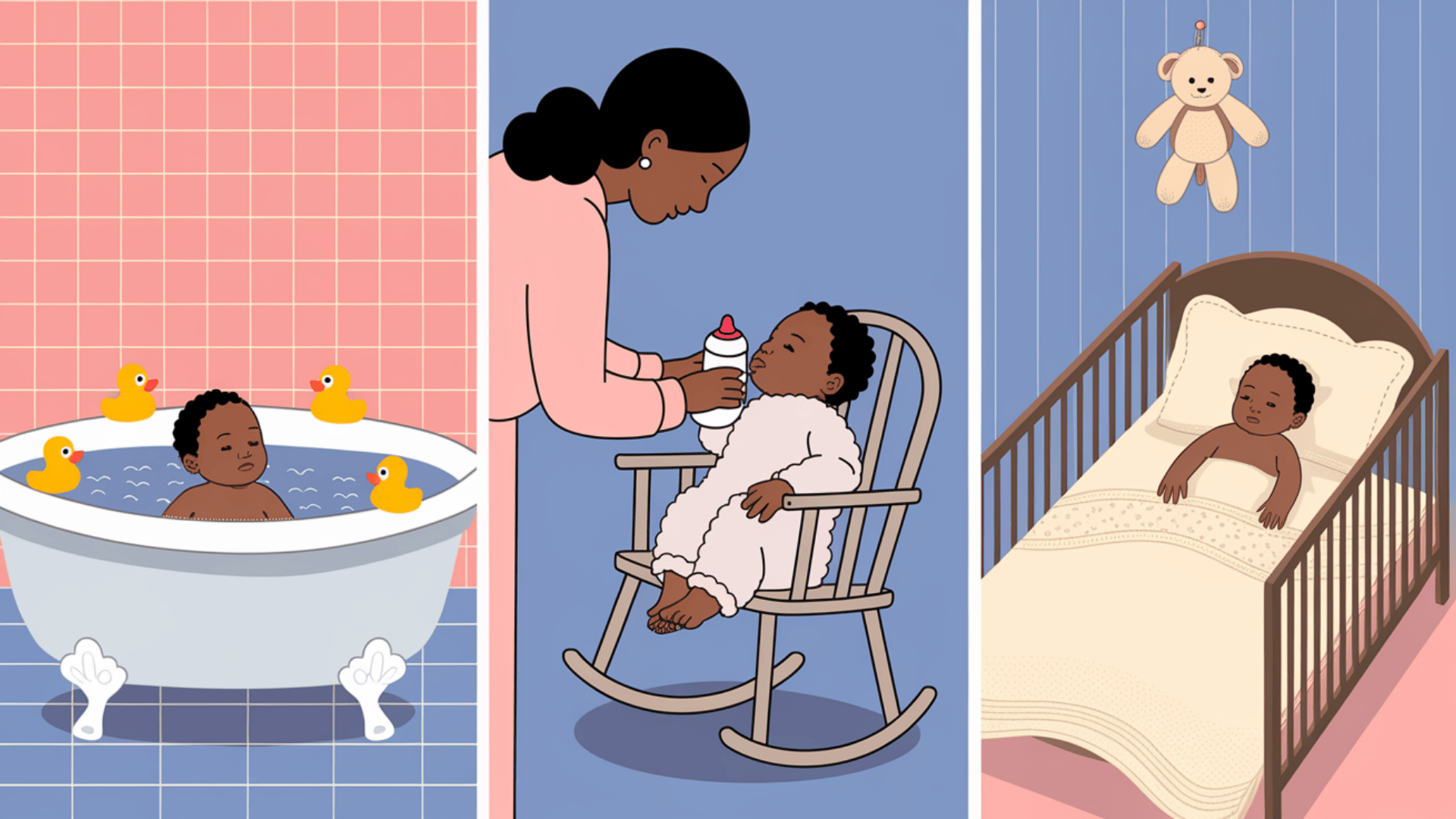
Babies thrive on predictability, especially when it comes to sleep. A consistent routine signals that sleep is coming and helps them transition from play to rest.
Keep your bedtime sequence simple but meaningful: perhaps a warm bath, cozy pajamas, a feeding, a book or lullaby, then into the crib.
The exact activities matter less than the consistency. Your baby will begin to recognize that this sequence means sleep is coming.
The routine doesn’t need to be elaborate or time-consuming—even 15-20 minutes is plenty. What matters is doing the same steps in the same order each night, creating a reliable pattern that becomes comforting to your baby.
As your baby grows, you’ll need to adjust the routine to match their development. A younger 5-month-old might need a shorter routine to avoid overtiredness, while an older 5-month-old might enjoy a slightly longer wind-down time.
Sample Daily Sleep Schedules for 5-Month-Olds
Finding the right rhythm for your 5-month-old can make or break your sleep success. Most babies this age need between 2 and 2.5 hours of awake time between sleeps—not too short, not too long.
3-Nap Schedule
| Time | Activity |
|---|---|
| 7:00 AM | Wake up and morning feed |
| 9:00-10:30 AM | First nap (1.5 hours) |
| 1:00-2:30 PM | Second nap (1.5 hours) |
| 4:30-5:00 PM | Third cat nap (30 minutes) |
| 7:00 PM | Start bedtime routine |
| 7:30 PM | Bedtime |
4-Nap Schedule
| Time | Activity |
|---|---|
| 7:00 AM | Wake up and morning feed |
| 9:00-10:00 AM | First nap (1 hour) |
| 12:00-1:00 PM | Second nap (1 hour) |
| 3:00-4:00 PM | Third nap (1 hour) |
| 6:00-6:30 PM | Fourth catnap (30 minutes) |
| 8:00 PM | Bedtime |
At this age, babies typically need about 14-15 hours of total sleep in 24 hours. That’s roughly 11-12 hours at night and 2.5-3.5 hours spread across daytime naps. But remember—every baby is different! Some naturally need a bit more or less.
Self-Soothing: Why It Matters & How to Support It?

The term “self-soothing” gets a bad rap sometimes, but it’s really about giving your baby the gift of knowing how to settle themselves when they stir. This doesn’t mean abandoning them to cry—it means helping them discover their comfort strategies.
You don’t have to choose between cry-it-out methods and hours of rocking. There’s a whole spectrum of gentle approaches that meet both your baby’s emotional needs and your family’s need for sleep.
Methods like the chair method (sitting next to the crib and gradually moving farther away), pick-up/put-down (briefly comforting then putting back down), or even just pausing for a moment before responding to light fussing can help babies develop sleep independence.
Start with what feels comfortable for your family. Small, consistent changes respect your baby’s need for security while helping them develop sleep skills.
When to Seek Expert Help?

While most sleep regressions resolve with time and consistent routines, sometimes you need additional support. Consider reaching out for professional help if:
- Sleep disruptions last more than 2-3 weeks with no improvement
- Your baby seems uncomfortable or in pain during sleep
- You notice signs of sleep apnea (pauses in breathing, loud snoring)
- Your mental health is suffering significantly from sleep deprivation
- You’ve tried multiple approaches without success
Your pediatrician should be your first stop, especially to rule out medical issues like reflux, ear infections, or allergies that might be disrupting sleep. For feeding-related sleep issues, a lactation consultant can provide targeted support.
Remember that seeking help isn’t a sign of failure—it’s a sign that you’re prioritizing healthy sleep for your whole family.
Summing It Up
Sleep regressions at 5 months can feel overwhelming when you’re living through them. Those midnight wake-ups and 30-minute naps might have you wondering if you’ll ever sleep again.
The good news? This isn’t just a phase you have to suffer through—it’s an opportunity to help your baby develop lifelong sleep skills.
The disruptions you’re experiencing now are actually a normal part of your baby’s sleep development. Their brain are maturing, and they’re learning how to cycle through different sleep stages just like adults do. With your guidance, they can learn to guide these cycles more smoothly.
Rather than looking for a magic solution, focus on gentle, consistent approaches that honor both your baby’s needs and your family’s sleep requirements.
Remember that every baby truly is different. What works for your neighbor’s baby or your first child might not work for this unique little person.
Pay attention to your baby’s signals, respect their temperament, and trust your parental instincts. You know your baby better than any sleep expert or parenting book.









